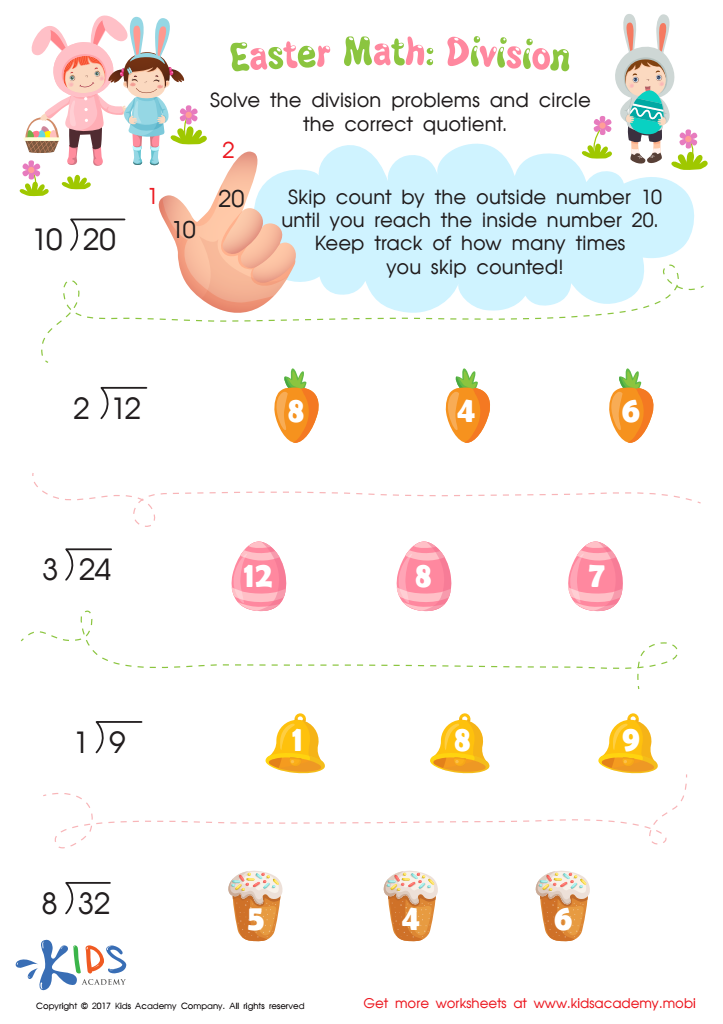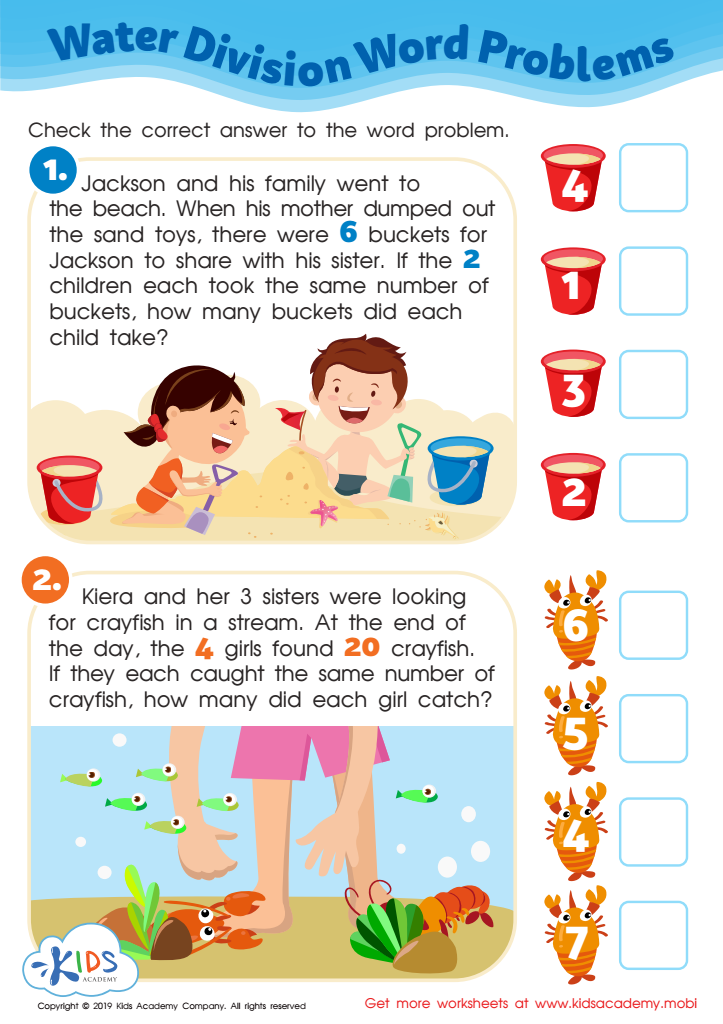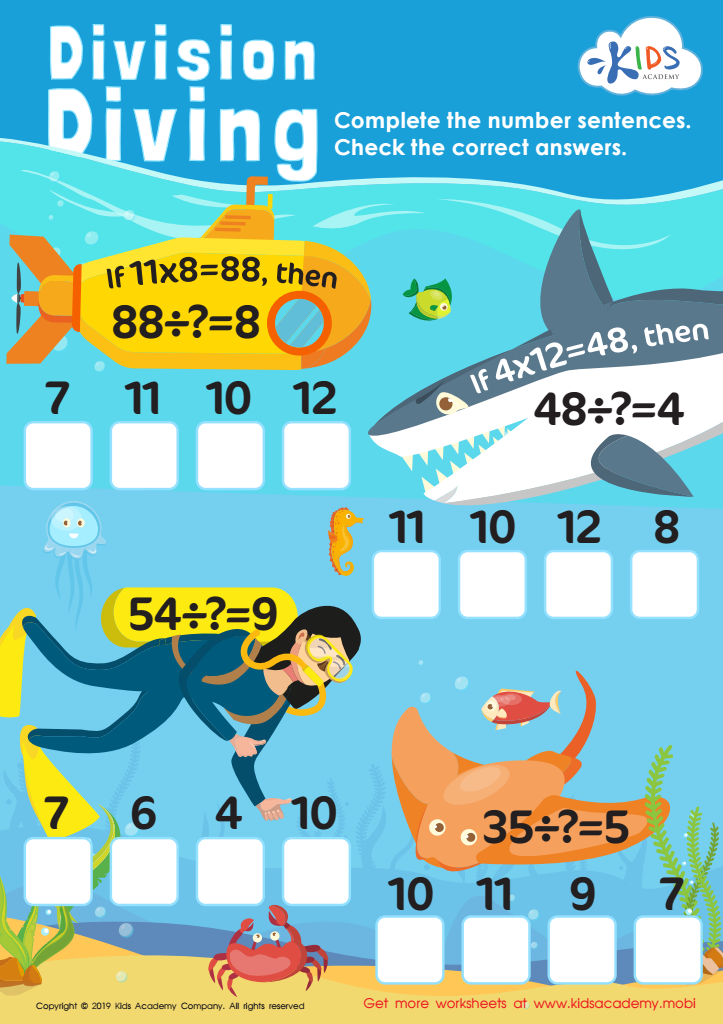Mathematical reasoning Normal Division Worksheets for 8-Year-Olds
3 filtered results
-
From - To
Unlock your child's potential with our Mathematical Reasoning Normal Division Worksheets designed for 8-year-olds. These engaging worksheets focus on enhancing critical thinking skills through entertaining division problems. Aligning with educational standards, our resources feature a variety of exercises that foster understanding of division concepts in a fun way. Your child will practice essential skills like interpreting division scenarios, solving word problems, and sharpening their reasoning ability. Perfect for reinforcing classroom learning, our worksheets serve as valuable tools for home study and independent practice. Dive into a world of mathematical exploration and boost your child’s confidence in division today!


Division Worksheet


Water Division Word Problems Worksheet


Division Diving Worksheet
Mathematical reasoning, particularly in the context of normal division, is crucial for 8-year-olds as it lays the foundation for their future understanding of more complex mathematical concepts. It fosters critical thinking skills, allowing children to analyze and solve problems logically. At this age, children are developing cognitive strategies to understand how numbers work together, and grasping division helps them conceptualize sharing, grouping, and partitioning, which are vital in everyday life.
Teachers and parents should prioritize teaching division not just as memorization of facts, but as a reasoning process. Engaging children in discussions about the "why" behind division promotes deeper understanding and helps them make connections with various mathematical concepts, such as multiplication and fractions.
Furthermore, strong mathematical reasoning supports children’s confidence and resilience in tackling challenges. When children learn to break down problems and reason through potential solutions, they are better prepared for real-world applications, such as budgeting or problem-solving in future subjects. Lastly, fostering these skills at an early age can lead to a lifelong appreciation of mathematics, encouraging positive attitudes toward learning and perseverance in all academic areas.
Overall, nurturing mathematical reasoning in young learners provides essential tools that extend far beyond the math classroom.
 Assign to My Students
Assign to My Students















